Interviews
Bonni Goldstein: “It's time to try CBD! There is no reason for it to be number 15 on the list.”
Published
1 year agoem
By
Laura Ramos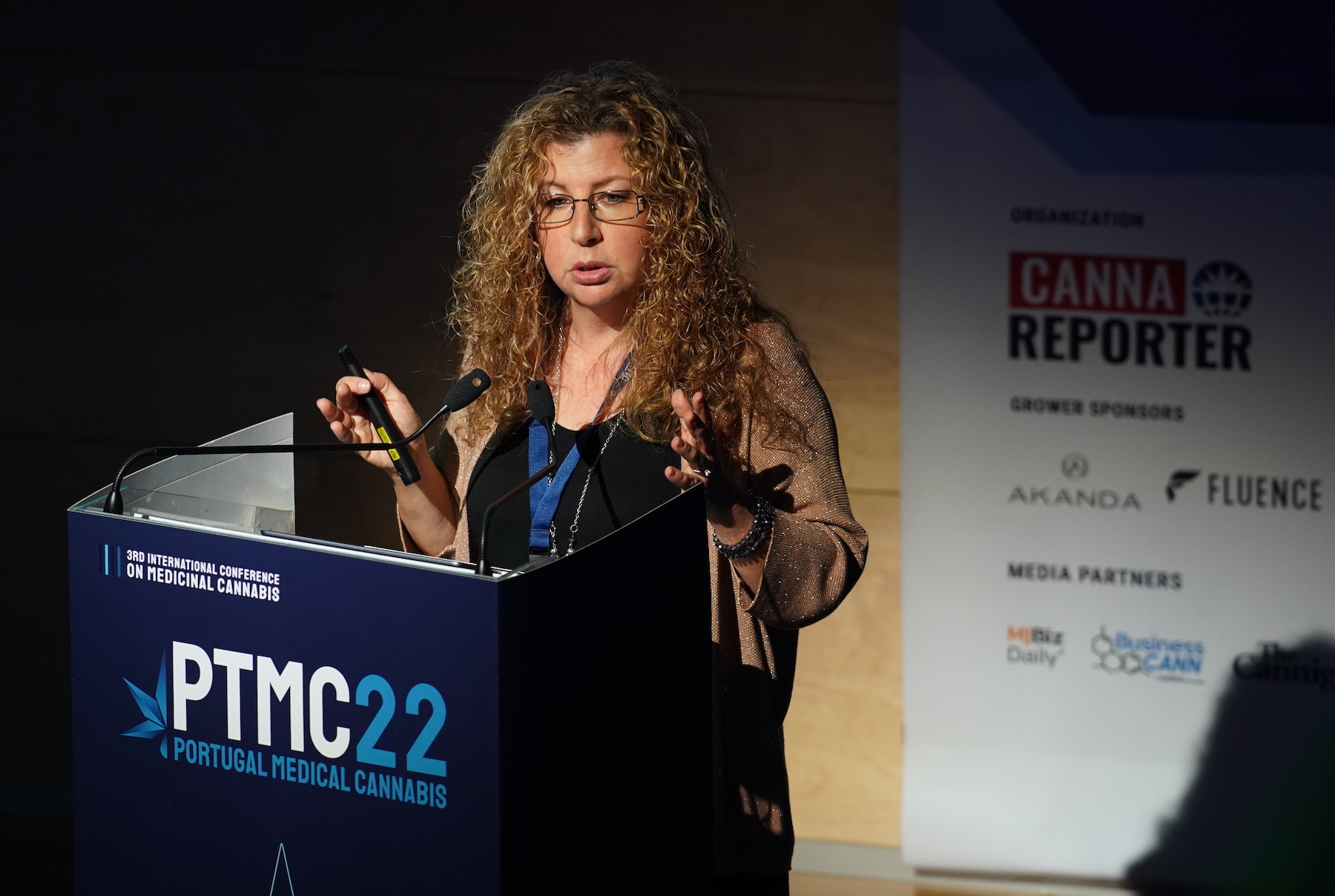
Bonni Goldstein has been a Pediatrician in Los Angeles for over 30 years and a pioneer in the field of cannabinoid-based medicine. medical director of Canna-Centers Wellness & Education, her clinical practice has focused on the treatment of children with serious and chronic illnesses, including refractory epilepsy, autism and cancer, among many others.
Over the past 13 years, Bonni has evaluated and treated thousands of pediatric patients with cannabis and, in 2020, published the book Cannabis is Medicine: How Medical Cannabis and CBD are Healing Everything, from Anxiety to Chronic Pain.
At the invitation of PTMC – Portugal Medical Cannabis, Bonni was in Portugal in June 2022, to present the latest scientific discoveries related to the use of cannabinoids, such as CBD, CBDA, THC, THCA, CBG, CBN or CBDV in the treatment of pediatric diseases. We spoke with Bonni Goldstein and got to know her journey better and the advances she has made in her career dedicated to cannabis as medicine.
This interview was originally published on issue #7 of Cannadouro Magazine.
You can read the edited version below or watch the full video on Youtube channel of Cannareporter / PTMC – Portugal Medical Cannabis. Please note that due to the editing of the interview for publication in Portuguese and the automatic translation of this website into other languages, there may be slight differences between the original sound of the interview and the text reproduced below.
Bonni, it's a pleasure to have you in Portugal for PTMC and here, albeit online, for this interview for Cannareporter and CannaDouro Magazine. How did you decide to be a doctor? Was it her childhood dream or was it something that came later in her life?
Ah, it appeared when I was about eight years old, I think I was influenced by a TV show that my father liked. They would bring people into the hospital and do tests and I was really captivated by that. I decided I wanted to be a doctor, but I didn't know what specialty. In my training they tested us in surgery, internal medicine, gynecology, etc. and when I did pediatrics I realized that I had found my place. And so I went to train as a pediatrician, for more than 30 years. It's only 13 years in this cannabis world.
As a starting point for this interview, I used the book that he recently published, “Cannabis is Medicine”, where he mentioned that it was through a friend that he discovered medical cannabis. Is it still common to find doctors in the US who have no idea what the endocannabinoid system is?
Well, yes, because it's not being taught. Perhaps less than 20% of medical schools mention the endocannabinoid system. And this is obviously a problem, because we know that conditions related to endocannabinoid dysfunction or deficiency can be the main part of the disease or sometimes they are a consequence of the disease. But if you leave that endocannabinoid system uncorrected or, shall we say, not augmented – because that's really what we're doing when we take cannabis-based drugs, we're augmenting that system to help it function better – and if you don't study about So, how are you going to deal with the underlying illness? How do you have a patient on their 10th medication, who is still not doing well, and you say “well, you are untreatable”. We use this word 'intractable' or 'refractory'. “Ah, yes, we can't help him, there are no drugs to treat him”… But even so, this patient was only analyzed through the allopathic medical program, instead of starting to look for a solution outside of that.
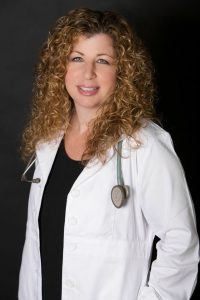 Are there still many doctors who ignore a fundamental piece of the puzzle, the endocannabinoid system? How do you see this situation?
Are there still many doctors who ignore a fundamental piece of the puzzle, the endocannabinoid system? How do you see this situation?
Of course, 100%! We are asking people to take other medications and in the case of many of my pediatric patients, with refractory epilepsy, having a magnet installed, invasive procedures… How about brain surgery? How about five different drugs with terrible side effects that affect a child's brain development? It's this crazy conundrum we're living with. And here is this benign plant, which has been so maligned and, you know, a lot of people would say they'd rather have this patient do all these invasive things. And maybe there is this last resort, but still they are against it. Which is really unfortunate, because we already know that in epilepsy, for example, CBD is considered an effective and safe anticonvulsant. But we still have neuropediatricians who say “no, no, let's try everything else”. First, it is wasting time and losing brain function in a developing brain, allowing children to continue to have seizures. Second is also trying out different medications that can have serious side effects.
This also happens in Portugal. We have reports from families whose doctors still deny CBD to children with epilepsy or autism. Do you think these are the biggest challenges encountered in clinical practice?
There are obviously those who will not prescribe, but parents can change pediatricians or neurologists and bring CBD into the conversation. The problem is that there might be a family that got the “Okay, go ahead and do it” but the doctor doesn't know anything about it and can't help. So you have to find someone who knows and it's not easy. I try to see as many patients as possible, but I'm just one person. I'm trying to educate other doctors, and I definitely see more and more doctors embracing this. So that's the good news. It's not all a disgrace, but in some countries there is still a bit of a delay. The first patient I treated with CBD was in 2013, it's been almost 10 years, and that child is thriving and growing very well. He takes cannabis oil, not just CBD, he also takes THC and THCA and is thriving in his life. It's perfect? No, but when we analyze the problems he had at age four and how he is now… And I would like to share the case of a child with autism, who when we introduced CBD, behavior improved, sleep improved and then we introduced CBG (Canabigerol) and he began to speak. We found a good dose and when that happens we are maximizing the benefits and minimizing the side effects. Then we added the CBDA and mom said her language just went off the rails. Now, I have to be honest: we don't know all the mechanisms of action, but that hasn't stopped us from distributing all these drugs. My mother took a drug called Dilantin that to this day no one knows exactly how it works and is still prescribed. So there's this kind of double standard with cannabis, that we have to know everything about it, again based on all this hype that wasn't true. I think we've already identified that these compounds are medicinal, safe and effective. They're not perfect, but nothing is.
So what does an empirical approach do to your patients? If CBD doesn't work, for example, try CBDA or CBG?
Yes. And even, let's say, even if CBD works but doesn't give the complete treatment that we're looking for, we try other phytocannabinoids, because with each patient I have to find the best answer for a compound and sometimes there's no answer, sometimes it's a partial answer and sometimes it's a perfect answer. And so I found that the combination of cannabinoids can really be great for people who have chronic conditions, especially children with epilepsy or autism, where a combination of CBD and CBG might be working, or CBD and CBDA, or CBD and THC, the combinations are endless. Dosage is calculated individually, it is not a specific dose. In the world of conventional medicine you say “okay, this is the dosage”, but in the world of botanical medicine we really want to start with a low dose and increase it progressively. It can be tedious, but you have to be patient to find what works for you. So, it's a bit empirical and it's individualized, or personalized, because even though it meets the same requirements for a medical condition or a diagnosis, remember that the endocannabinoid system is functioning at a cellular level, which is very different in the way it works. each of us metabolizes, absorbs or utilizes different compounds. And we have to respect that.
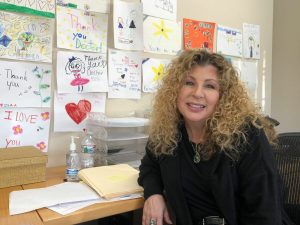 He talked about minor phytocannabinoids such as CBG or CBDA, which are not yet as widely used. Bonni says in her book that for many years she didn't investigate herself because of the ban. What is the current status of medical cannabis research? What evidence do we already have, at least for pediatric pathologies?
He talked about minor phytocannabinoids such as CBG or CBDA, which are not yet as widely used. Bonni says in her book that for many years she didn't investigate herself because of the ban. What is the current status of medical cannabis research? What evidence do we already have, at least for pediatric pathologies?
Well, the state of research is very sad. Of course, there are funding issues and difficulty finding physicians interested in doing this research, but luckily, there are still quite a few investigators out there. That's the good news, again, but we're certainly behind schedule with all the years we've wasted. I think more about cancer or neurodegenerative disorders. For autism we already have a decent knowledge base as there is evidence of endocannabinoid dysfunction and there is evidence of a response. But you can't look back 20 years when it comes to autism and cannabis, that doesn't exist. For epilepsy, there's no doubt that CBD is considered a treatment, but it's going to take years and years for us to know everything, and again, botanical medicine, components still in that natural state of the whole plant, it's very difficult to study, because it's complicated. know which component is doing what. This in fact does not fit the pharmaceutical model, which is “we have a substance, a chemical structure that we are going to study”. It is very difficult to study botanical medicine in the same way.
How do you advise your patients to take CBD? Many people take CBD for two or three weeks and, as sometimes they don't see results, they say it doesn't work, but it really doesn't, right? A certain dosage has to be reached.
That's right. Dosage, dosage, dosage! What we know about CBD for epilepsy or autism is that there will be patients who will respond at the lower end of the dosage and there will be patients who will require the higher end. How do you know where it is? It starts with a low dose and increases progressively. In general, for pediatric epilepsy, we start with about one milligram (mg) of CBD per kilogram (kg) per day, divided into two doses. So, taking the patient's weight, multiply 1mg for each kg and we end up with a value per day. For example, a 25 kg child will start with 25 x 1mg per day, which is equivalent to 25mg per day, divided into two doses, one in the morning and one in the evening. We do this for two weeks and then increase to 2mg per kg per day, then 3mg per kg per day and so on, for at least 10 weeks or until improvement is felt or the ideal dose is found. I know it's tedious, but that's how it works. For epilepsy I found, with botanical medicine, the dosage range that is effective, somewhere between 5 and 25mg per kg per day. This is what we call the broad therapeutic spectrum, and again there will be children at one end and there will be children at the other end. So, dosage is important. I don't know how many people came to my office and said, “Oh, we've tried CBD. Does not work". And then I calculate and they only took 2mg per kg per day. This isn't even on the lower end of the therapeutic spectrum, meaning it didn't even make it into CBD.
Does it also have to do with the concentration of the oil?
Of course! What we have to realize is that it all depends on the oil you are using. If we are using an oil that is not very concentrated, like only 5%, that is, if it does not have many milligrams per milliliter, then it is not possible to dose it, because a child cannot drink an entire bottle of oil. There is a company that recently launched a new oil, with 500mg in each bottle. If your daily dose is 250 milligrams, which is not unusual for a child with epilepsy, there are only two doses in that bottle! This is not the right product. There are others, which have 3.000mg or 5.000mg in the bottle. Therefore, this wide dosage range is very important. Another important thing to mention, drug interactions. We know that Clobazam is one of the drugs to be careful with. It's not that it's dangerous, but it can cause a lot of sedation and also Depakine or Valproic Acid, you have to be careful, because these drugs can interact with the liver, so it's important to follow up with blood tests that analyze the function liver. But other than that, overall it's pretty safe. Now, I recommend that there be some medical supervision when doing this, especially with children who have chronic conditions, just because the supervision is good, so you don't get so scared. And, again, it's not that it's bad, but we know it's difficult, because not many professionals do it.
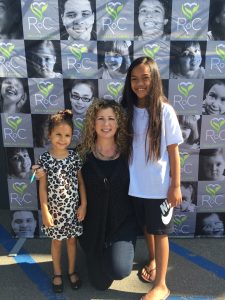 He also mentioned that for correct dosing, droppers should not be used, but a 1ml syringe, for example.
He also mentioned that for correct dosing, droppers should not be used, but a 1ml syringe, for example.
That's true. the droppers are different, some are small, others are big, so do not give an accurate dosage. Buying a good product is also critical—and what do I mean by that? A product that is stable over the months, reliable and regularly tested. Having a certificate of analysis is very important. Said that, recommend using a 1ml syringe or a 3ml syringe for larger volumes, to make sure the dose is accurate. The reason we say mg per kg per day is because you want to make sure your child doesn't go over the dose and remember, because kids are growing. The child may gain 5 or 10 kilos and then start having seizures. So it's always good to know how many mg per kg per day so that if you gain weight you can recalculate the dose to compensate for that weight gain. But CBD is a benign medicine, very safe, especially under medical supervision and especially in a child who has already tried two or three different drugs. It's time to try CBD! There's no reason this should be number 15 on the list, because we also know that after the first few medications, if you're not getting any benefit, it's very unlikely that you will. And it will likely get worse with long-term side effects.
What are the main pathologies you treat in your clinic?
It's often the worst of the worst, where they've tried everything, including brain surgery. Epilepsy, autism, often dual diagnosis where there is overlap of the two, patients with gastrointestinal disorders such as Crohn's disease, ulcerative colitis, anxiety, depression, borderline personality, especially in teenagers. Also, pediatric cancer. A lot of the cancers I see are ones where the patient doesn't have a clear path to remission.
Do you also prescribe THC to children?
Many of my pediatric patients use THC. It is very important to understand the science and not go back to the propaganda that THC is damaging your brain. We have a component in our bodies called anandamide, which is part of our endocannabinoid system and is produced on demand when we need it. This happens when we are out of balance somewhere, whether it be our immune system or the chemical messages being sent to our brain for anxiety, pain or nausea. Anandamide is released, the body recognizes physiological stress and will maintain that homeostasis, that balance. That's the job of the endocannabinoid system. What mimics anandamide is THC and we know this from Prof. Mechoulam. There are studies that report that children with autism may be deficient in anandamide and so we know that they are missing a chemical necessary to maintain physiological homeostasis, that is, all the chemical balances in your body that you want to maintain evenly. No wonder autistic people have self-mutilating behavior, no wonder they are aggressive or can't sleep, or cry or scream all day in pain. They are out of balance! And drugging them with pharmaceuticals does not address this underlying cause. So how do we fix this? Well, we can use CBD, because CBD will interact, but for a lot of them, when you give them a non-harmful dose of THC, it gives them that endocannabinoid system boost, like it's an anandamide replacement treatment, to help. to restore balance. This idea that THC is bad for the developing brain is just nonsense. If the brain doesn't have any problems, ok, I agree, don't give it THC! (laughs) But when there's a clear imbalance, especially in a condition where we have evidence of anandamide deficiency or endocannabinoid dysfunction, then of course you'd want to include THC, because CBD doesn't do the same thing.
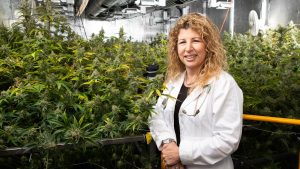 Does Bonni also work closely with parents to monitor their patients?
Does Bonni also work closely with parents to monitor their patients?
When it's a new patient we spend about an hour, hour and a half, together. I give them my email and say, "Put me on your calendar for a once a week or once every two weeks check-in, saying what the child is taking and what they see." This is invaluable information, because first of all, I don't like to put a child on a medication and say “I'll see you in three months”. That's a complete waste when you're talking about cannabis, because you start with a low dose, you have to dose it. I would never leave a child on a low dose for three months. What a waste of money on oil, right? So I say to all families, “If you get in touch with me every week or two weeks, we'll get somewhere. How do you know it's a good dose? The only way to know is to get to that dose and sometimes you have to let it go and then go back. "Oh, oops, he's so sleepy now." “Okay, go back. Maybe it was 1ml too much, ok, so now we are here at this dose.” It is important to remember that botanical medicines are not hard or heavy. They take you in the right direction over time. And usually after two or three months you start to really see benefits. And it's also interesting that a number of studies now show that the longer you take cannabis, the better the results, which is really fascinating. So giving up early is not a good idea. I understand that you can get frustrated, especially when you are paying out of pocket, but you have to give it time. We are talking about plants! And we have to give plants the opportunity to change the chemistry.
____________________________________________________________________________________________________
[Disclaimer: Please note that this text was originally written in Portuguese and is translated into English and other languages using an automatic translator. Some words may differ from the original and typos or errors may occur in other languages.]____________________________________________________________________________________________________

What do you do with €3 a month? Become one of our Patrons! If you believe that independent cannabis journalism is necessary, subscribe to one of the levels of our Patreon account and you will have access to unique gifts and exclusive content. If there are many of us, we can make a difference with little!
-
Laura Ramoshttps://cannareporter.eu/author/partner/
-
Laura Ramoshttps://cannareporter.eu/author/partner/
-
Laura Ramoshttps://cannareporter.eu/author/partner/
-
Laura Ramoshttps://cannareporter.eu/author/partner/
Related News
-
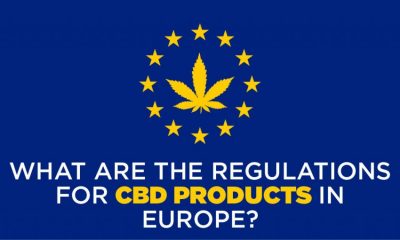

European Commission: each country must decide whether CBD is a medicine or a food supplement
-
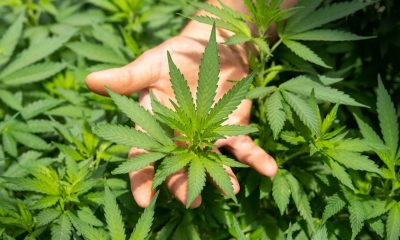

Bloco de Esquerda delivers a new bill to Parliament today to legalize the personal use of cannabis
-
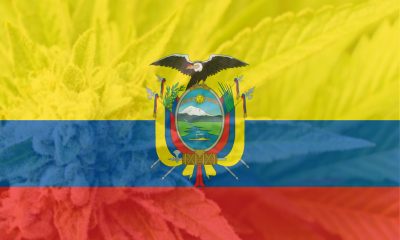

Ecuador proposes health reform that includes Medical Cannabis
-


Norway: Activists send 200g of cannabis to the Prime Minister and other politicians by post
-
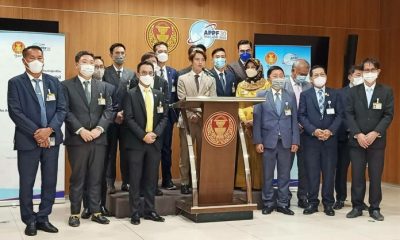

Thailand takes a step back on cannabis legalization
-
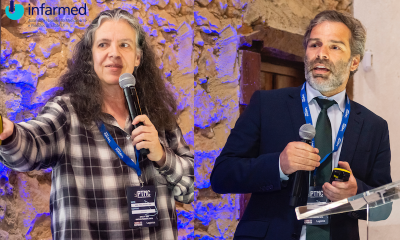

Infarmed: “There are companies that have very high quality standards and others that have very… debatable quality standards”

Mais recentes


Álvaro Covões, who acquired land from Clever Leaves, says he has “no interest in growing cannabis”
At the beginning of April, we reported that Álvaro Covões, founder and CEO of 'Everything is New', had purchased the land where he was located...


Portugal's regulatory advantage in the cannabis industry
In the dynamic landscape of European cannabis cultivation, Portugal has emerged as an interim leader. Although it shares many natural advantages with...
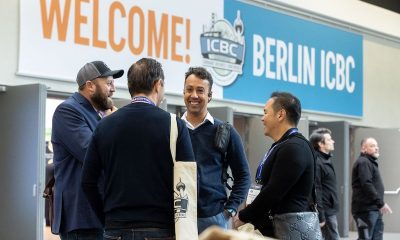

ICBC Berlin shines again. It's the beginning of a new era for the cannabis industry in Germany
ICBC Berlin was the first major international cannabis conference to take place after the legalization of adult use in...
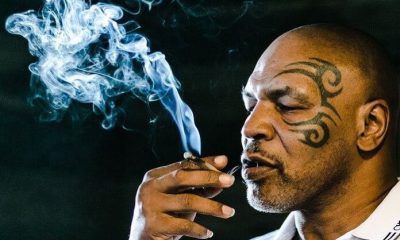

USA: Mike Tyson products recalled for mold contamination
California authorities have issued a mandatory recall notice for two products from Mike Tyson's cannabis brand,...


4:20 is coming and there are celebrations in Porto and Lisbon
The date for celebrating cannabis culture is approaching! This Saturday, April 20th, is the day when...


Paul Bergholts, alleged leader of Juicy Fields, detained in the Dominican Republic
Paul Bergholts, the alleged leader of the Juicy Fields pyramid scheme, has been detained in the Dominican Republic and will be subjected to...


Cannabinoids reveal promising results in the treatment of Borderline Personality Disorder
An investigation carried out by Khiron LifeSciences and coordinated by Guillermo Moreno Sanz suggests that medicines based on...


Juicy Fields case: 9 detained by Europol and Eurojustice. Scam exceeds 645 million euros
A joint investigation conducted by several European authorities, supported by Europol and Eurojust, culminated in the arrest of nine suspects...


Regular cannabis users may require more anesthesia during medical procedures
Regular cannabis users may require more anesthesia during medical procedures to remain sedated compared to...
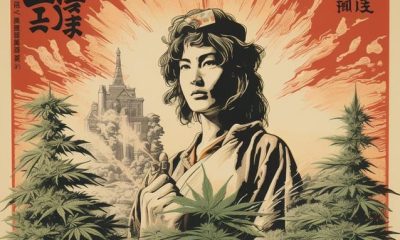

The future of CBD in Japan: How legal reforms will shape the market
Late last year, Japan took a big step towards cannabis reform after approving...







